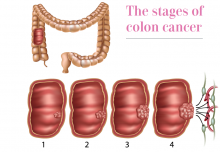Almost everyone knows someone who has had a medical emergency: a broken bone, a burn, choking, a bee sting, a heart attack. The list goes on and on. But for most people, the hope is that it will never happen to them. That’s why so many people don’t give it a lot of thought.
If that sounds like you, here are three questions you should be asking:
- Would I recognize a medical emergency?
- Would I know when to call 9-1-1?
- What should I do after I call 9-1-1?
Not knowing the answers to these three important questions is one of the main reasons people die in a medical emergency even though their death could be preventable. Unfortunately, 40% of Americans don’t know a single symptom of a stroke even though it’s the third most common cause of death in the United States.
That’s why I, together with Shelly Glazier, have written a new book called “Save Your Life: What To Do In A Medical Emergency.” It’s a simple to read and easy guide that answers these three common questions above.
Here are four important examples taken from our book to help you when you are faced with a medical emergency:
If you think there could be a medical emergency:
Should you:
- Call your doctor?
No! Waiting for the doctor to call back wastes valuable time. - Rest to see if you feel better?
No! Waiting to see if the symptoms pass also wastes time that could save a life because the sooner you get medical care: the more likely you are to live. - Drive yourself to the hospital?
No! If you drive yourself to the hospital, you might pass out or stop breathing on the way. - Call a family member or friend for a ride to the hospital?
No! Do not ask family or friends to drive you to the hospital (unless emergency services are unavailable). If you lose consciousness, your driver likely won’t be able to help you.
Here is why you should call 9-1-1 immediately in all of these cases:
- When you call 9-1-1, the responding Emergency Medical Technicians (EMTs) will monitor you. If you stop breathing or your heart stops beating, they will give you emergency treatment on the way to the hospital.
- They also will notify the emergency room staffs of your condition, so when you arrive they will know you need immediate treatment.
Calling 9-1-1 is the safest and fastest way to get medical care. Remember, car accidents are more likely to happen when family or friends are trying to rush you to the hospital.
Oh, and here is what you need to remember to save someone’s life from a stroke. This and so much more is in our book Save Your Life: What to do in a Medical Emergency. Remember the first letters; they spell the word FAST:
Common Symptoms of Stroke
The National Stroke Association’s “ACT FAST©” list can help you identify the symptoms of a stroke:
| FACE | Ask the person to smile. Does one side of the face droop? |
| ARMS | Ask the person to raise both arms. Does one arm drift downward? |
| SPEECH | Ask the person to repeat a simple sentence. Ask them to repeat a phrase. Are the words slurred or strange? |
| TIME | If the person shows any of these symptoms, time is important because brain cells die every second. |





